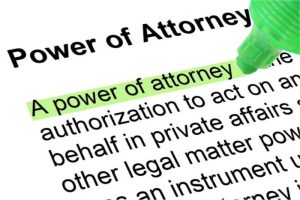02 Jun COURT RULES AGENT UNDER POWER OF ATTORNEY CANNOT DEED PROPERTY TO SELF
 During the lifetime of the person who signed a power of attorney (hereinafter the “Principal”) which gave broad powers (including the right to deed property) to the Agent, the Agent deeded certain real property owned by the Principal to himself (the Agent). After the Principal died, a beneficiary of the Principal’s estate sued the Agent for breach of fiduciary duty as a result of his self-dealing. The court agreed with the beneficiary that sued and ordered the property that was conveyed be returned to the beneficiary. This case is particularly important for elder law attorneys and applicants for certain public benefits since transfer planning is common for “means tested” public benefits programs. Prior to any transfer, the power of attorney should be reviewed to determine what authority the Agent actually has and existing estate planning documents should be reviewed to be consistent with the intended plans of the Principal. The Agent should also be advised that agents are acting as a fiduciary.
During the lifetime of the person who signed a power of attorney (hereinafter the “Principal”) which gave broad powers (including the right to deed property) to the Agent, the Agent deeded certain real property owned by the Principal to himself (the Agent). After the Principal died, a beneficiary of the Principal’s estate sued the Agent for breach of fiduciary duty as a result of his self-dealing. The court agreed with the beneficiary that sued and ordered the property that was conveyed be returned to the beneficiary. This case is particularly important for elder law attorneys and applicants for certain public benefits since transfer planning is common for “means tested” public benefits programs. Prior to any transfer, the power of attorney should be reviewed to determine what authority the Agent actually has and existing estate planning documents should be reviewed to be consistent with the intended plans of the Principal. The Agent should also be advised that agents are acting as a fiduciary.










